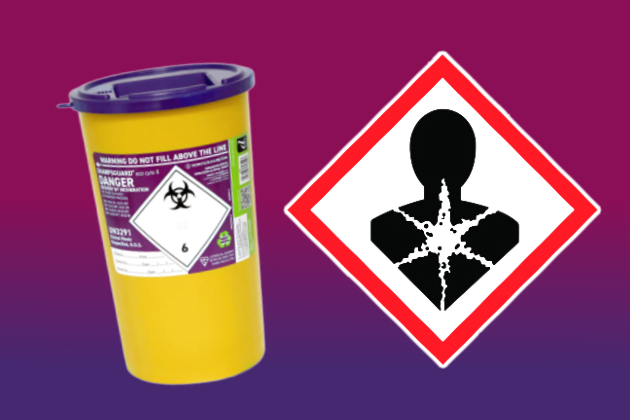While aggression towards nursing staff should never be tolerated, the role carries a higher risk of assault than other professions.
Some specialties are more at risk of violence than others, with acute mental health settings having one of the highest instances, but lone workers and nursing students on placements are also at risk.
Assaults against nursing staff and health care workers in all settings are increasing, especially since the COVID-19 pandemic.
Freedom of Information requests by the RCN to NHS acute trusts in England revealed violence against nursing staff working in A&E has almost doubled in five years.
Employers have a duty of care to protect staff
Longer wait times and patients being treated in inappropriate spaces, including corridors, cupboards and even car parks, could all be contributing to this disturbing trend.
- Read next: Corridor care: the impact in care homes
Figures from the latest NHS staff survey in England reveal one in seven NHS staff (14%) experienced physical violence from patients, their relatives or other members of the public in 2024.
One in 12 also experienced unwanted sexual behaviour, including offensive comments, touching and assault.
Responding to the survey findings, the RCN said it should “send shockwaves” through the Westminster government and more needs to be done to protect health care workers.
Rachelle's story
Rachelle McCarthy, a senior A&E charge nurse, says the whole system creates a crisis point in A&E. “People are waiting a long time, they’re frustrated, they’ve no other access to help,” she says.
“They reach us at breaking point because they can’t get into GP surgeries or community services. In A&E, staff are particularly vulnerable because you can’t be sure if someone has an aggressive disposition, whether they’ve taken drugs or alcohol or even if they’ve got a weapon.”
Rachelle has experienced violence from a patient first-hand. She was punched in the face by a man who was aiming for a hospital security guard in her emergency department. “He was so intoxicated with alcohol and drugs; I was just in the way when he swung his fist.”
Thankfully, she wasn’t seriously injured, and the incident was reported to the police and the trust.
Rachelle’s dealt with verbal abuse, patient-to-patient assaults and once had a male patient expose his genitalia to her. “We do have a policy at our trust that means, unless someone has a life-threatening injury, we can have them removed from the hospital. There’s zero-tolerance for assault. I also report any incidents to the police.”
Duty of care
While cases of assault and violence in a medical setting can be complex, all health and social care employers have a legal duty to protect staff and take steps to prevent abuse and assaults on employees.
However, over the last five years, the Health and Safety Executive has found many NHS organisations in England, Scotland and Wales are failing in their duty to manage risk.
The RCN’s Health and Safety Reps Committee brought the matter to the main debate hall at RCN Congress 2025. As members shared their stories of workplace-related violence, they overwhelmingly voted in favour of the RCN holding employers more accountable in their duty of care.
- Read next: From Congress to constitution
“Regardless of the nature of an assault, all are unacceptable and employers have a duty of care to ensure proper training, reporting procedures and after-care are in place for staff,” says RCN Head of Health, Safety and Wellbeing, Kim Sunley.
Nursing staff providing NHS care in England and Wales are also protected by the Assaults on Emergency Workers (offences) Act 2018.
This policy is enshrined in law to increase the penalty if someone assaults an emergency worker – an action instigated by the RCN after members voted to make it a priority at RCN Congress in 2017.
Staff might not be impacted right away
A similar law exists in Scotland. Other laws exist across the UK for more serious offences such as actual bodily harm.
“In some cases of an assault by a patient it wouldn’t be appropriate to take police action; for example, if a person with dementia lashes out in fear or frustration,” says Kim.
“But, we should never assume that being assaulted is part of the job,” she adds.
Report and support
Support from managers and colleagues is key, but management should also be recording the frequency of incidents, regularly reviewing medication for patients and ensuring nursing staff have continuous training to make sure they’re minimising the risk of assault.
“Nursing staff need to report any incidents through their manager and reporting system of assault or abuse, and they should be encouraged to do this in the workplace," says Kim.
“It’s really important to formally report any kind of assault as it protects others from potential risk and can be used as evidence should any longer-term health problems arise for the member of staff.”
Reporting ensures employers know the true extent of violence so they can put measures in place to prevent further occurrences.
“Staff should also be signposted to occupational health and counselling as the reaction to assault is not linear and staff might not be impacted straight away,” adds Kim.
What to do if you’re assaulted
- Ensure safety. “Assess the situation and take appropriate action, calling for backup and security. Don't try to intervene once security is handling the matter.” says Kim.
- Call the police. “The police may already be there, but there’s nothing to stop you calling them. There might be reasons you wouldn’t want to, but no one should prevent you from doing so.”
- Notify your manager. “Depending on the severity, it might be necessary to get medical attention or go home. Your manager should check in with you regularly as an assault can have a psychological impact.”
- Report using incident-reporting systems. “Your trust will have their own way to report any abuse or assault; a colleague can do this on your behalf, if needed. Make sure to capture witnesses if possible, in case there’s a police investigation.”
- Be examined and given first aid. “Adrenaline will be high after an assault and you might not always feel the physical effects until later, so get checked out if necessary.”
Get help
The RCN has a wealth of resources designed to support members who’ve been assaulted.
- RCN advice on managing aggression and violence at work.
- RCN members can access free legal support and representation if they’re injured at work, which could result in compensation.
- Members can access free counselling for any reason.








